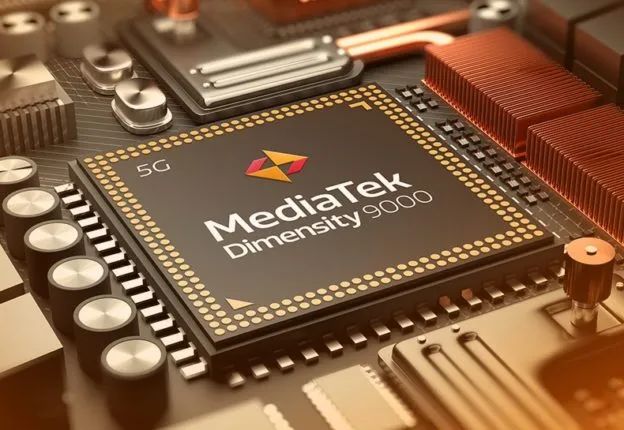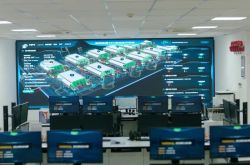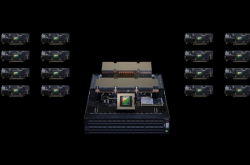NVIDIA is partnering with MediaTek to develop AI PC chips, planning mass production in the second half of next year
![]() 10/10 2024
10/10 2024
![]() 490
490
(This article is 1242 words long and takes about 3 minutes to read)

Recently, there have been reports that NVIDIA and MediaTek are jointly developing a 3nm AI PC chip, with trial production expected to commence this month and mass production planned for the second half of 2025. This collaboration could have a profound impact on the AI PC market, as the two tech giants combine their respective technological strengths to introduce high-performance and energy-efficient processors.
According to Chinese media outlet "IT Home", citing industry insiders, this 3nm AI CPU from NVIDIA and MediaTek will integrate NVIDIA's powerful GPU technology. It is anticipated that major PC manufacturers such as Lenovo, Dell, HP, and ASUS will be among the first to adopt this chip. Given that the chip utilizes TSMC's 3nm process technology, with a manufacturing cost of up to $20,000 per wafer, the pricing for a single chip could reach as high as $300.
This partnership offers a new alternative to traditional x86 architectures, particularly with lower power consumption and higher efficiency in AI applications. As the demand for AI-driven PCs continues to rise, this collaboratively developed AI PC chip is projected to rapidly drive market penetration in the coming years.
This is not the first time NVIDIA and MediaTek have partnered. Earlier this year, the two companies made significant progress in their automotive collaboration, jointly launching the Dimensity Auto cockpit system SoC platform. This platform integrates NVIDIA's robust graphics processing capabilities and AI computing technology, supported by comprehensive software tools like DRIVE OS, DRIVE IX, CUDA, and TensorRT, providing automakers with a comprehensive solution for vehicles ranging from luxury to entry-level models.
While their collaboration in automotive chips has garnered widespread attention, the news of their foray into the AI PC chip sector underscores the vast potential for their partnership. By leveraging MediaTek's leadership in ARM-based processor design and NVIDIA's powerful GPU and AI GPU technologies, the two companies aim to expedite the development of slim, energy-efficient AI PC processors.
It is reported that the AI PC chip jointly developed by NVIDIA and MediaTek will employ TSMC's 3nm process and will be finalized this month, with mass production anticipated in the second half of 2025. Industry analysts predict a surge in AI PC market penetration, rising from 8% in 2024 to 30% in 2025 and potentially reaching 50% by 2026.
The growing demand for AI PC chips stems from their high efficiency and low power consumption in handling AI-related tasks. As AI applications proliferate, particularly in gaming, creative work, and big data analysis, the need for processors capable of supporting AI computations has intensified. The energy efficiency of ARM architectures in these applications is a crucial factor driving the growth of the AI PC market.
MediaTek's success in automotive chips has provided valuable insights for its entry into the AI PC market. Its Dimensity Auto platform, including chips such as C-X1, C-Y1, and C-V1, boasts NPU performance of up to 46 TOPS, 8K video recording capabilities, multi-camera support, and even the ability to run NVIDIA RTX-supported AAA games.
These automotive chips' robust AI computing power, support for ultra-large models, and local LoRA training features may carry over to AI PC chips. If the upcoming AI PC chips possess similar GPU computing capabilities, multi-screen support, and advanced AI inference functions, they could revolutionize next-generation PC applications.
NVIDIA and MediaTek's partnership could significantly impact the AI PC market. As the world increasingly moves towards an AI-driven computing era, processors capable of efficiently handling AI workloads will become crucial in industry competition. This collaboration not only shortens the development cycle for processors but also brings high-performance and energy-efficient AI PC chips to the market.
Although details of the two companies' collaboration in the PC chip sector are not yet fully disclosed, industry observers are closely monitoring its future developments. If the trial production phase progresses smoothly this month, mass production in the second half of 2025 could usher in a new era of personal computing.
*Disclaimer: The content above is compiled from online sources and is intended for communication and learning purposes only. If there are any content or copyright issues, please contact us for removal.








